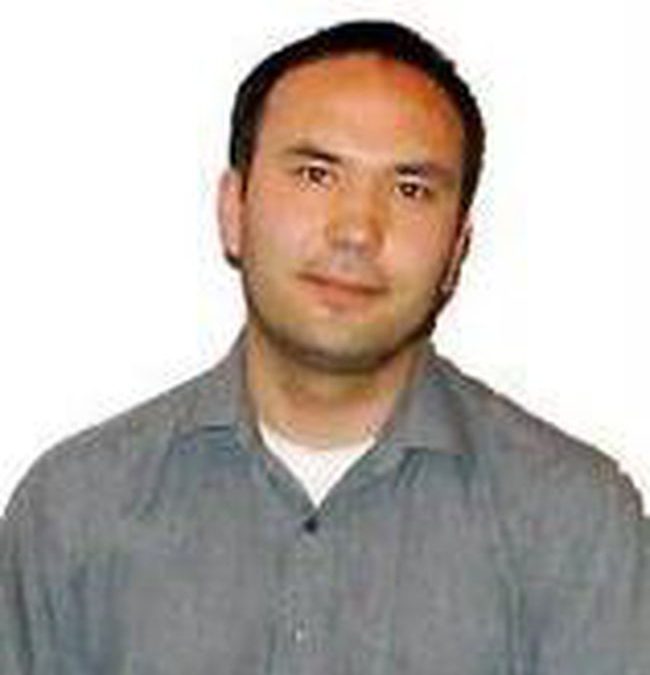
OTTAWA – A Canadian imprisoned in China for more than a decade had his life sentenced reduced because he took part in a re-education program, a top Chinese Communist party official said Tuesday.
Huseyin Celil, of southern Ontario, received a life sentence in 2007 for terrorism-related charges after a widely criticized trial that has strained Sino-Canadian relations over the course of two Conservative and Liberal governments.
Celil was an advocate for China’s persecuted Uighur community who fled to Canada in 2000 and later became a citizen.
He was arrested in Uzbekistan in 2006 on a trip to visit his wife’s relatives and was sent to China, where he was convicted and sentenced a year later.
Last year, the sentences given to Celil and 10 other Uighurs were reduced but the Chinese government didn’t specify by how much.
Zuo Feng, a visiting Communist party official, said Celil’s life sentence had been reduced to 18 years after he took part in a re-education program.
“During his journey in prison he has participated in a lot of speaking and used his own case as educational material and talked to more than 200,000 people,” Zuo said through a translator.
“So because of his activities, his sentence has been reduced to 18 years.
“Also he has visiting privileges from his family.”
Chris MacLeod, the lawyer for Celil’s family, said there is no way he would recommend Celil’s wife travel to China to visit her husband, even though she was never a Chinese citizen. He said such a visit could only be part of “an official invitation sanctioned by both governments.”
Celil has been denied visits by Canadian consular officials for the last 11 years, he said.
Zuo was part of a delegation of Chinese government officials that had come to Canada to discuss economic, social and cultural developments in the country’s westernmost Xinjiang region at a roundtable discussion with a select group of journalists.
That includes China’s massive “One Belt, One Road” project that aims to connect the country to many parts of Asia, Europe and Africa by way of ports, rail lines and roads.
But the region has been the scene of a Uighur insurgency that has claimed hundreds of lives in recent years and sparked a hard crackdown by Beijing. A 2014 attack in a public market that killed 31 people was branded as a terrorist attack by Beijing.
Members of the visiting delegation defended the need to get tough with what they said were terrorists undermining China’s security.
“Extremism is a toxic cancer internationally. Anti-extremism is a shared responsibility internationally,” said Yu Shangping, an associate research fellow at the Xinjiang Academy of Social Sciences.
Zuo was reluctant to discuss Celil’s case and chided journalists for focusing on the negative aspects of relations between his country and Canada.
He also elaborated on the role of re-education camps in Xinjiang
“If it’s a crime, that person will be prosecuted,” he explained.
“If that action is not constituted as a crime, however, it is borderline activities, then the action to do is to re-educate for that person, to prevent that person from being further influenced by extremism.”
John Kamm, a San Francisco-based activist who has worked with the Canadian government to win Celil’s release, said the disclosure of the new 18-year sentence is relatively good news and could be start of a series of sentence reductions that could lead to his freedom.
He says the re-education of prisoners is common practice.
“What they want to do is show prisoners, ‘if you behave like so, you too can benefit through shorter sentencing, commutation’.”
Celil’s saga raises questions for the Trudeau Liberals as they attempt to deepen economic ties with China, which is also anxious to start talks, said MacLeod.
“We can’t forget that if trade relationships are going to work, the rule of law has to be firm. Breaches of commercial agreements are also dealt with in a court of justice. It’s not simply a human rights piece.”
Alex Neve, secretary general for Amnesty International Canada, said the government needs to reconsider its strategy for winning Celil’s release, perhaps even appointing another special envoy to pressure China.
“The toll this has taken on his wife and four kids, who have essentially grown up without their father, has been immense and we’ve got to find a way to end it,” said Neve.
“This continues to play out in a wider context of unrelenting persecution against the Uighurs in western China which, if anything, seems to be deepening and intensifying.”
Written by Mike Blanchfield, The Canadian Press
Original Link: toronto.citynews.ca/2017/10/31/canadian-prisoner-in-china-re-educated-says-communist-party-official/


Recent Comments